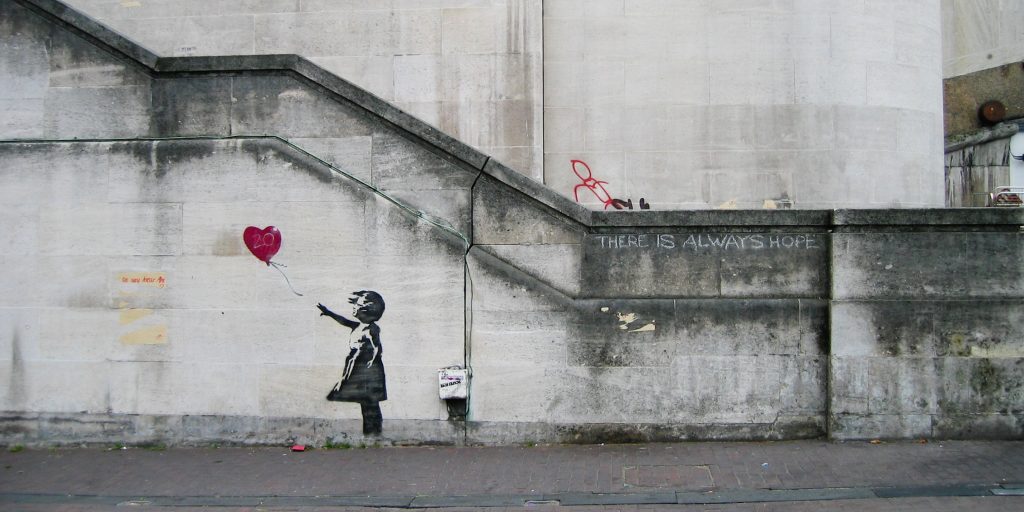When the artist cut up a £1 million piece of his, it doubled in value. So someone did the same with their Banksy print - and reduced the value from £40,000 to £1.
What it means: If you think about it, it must actually be pretty frustrating to be Banksy, a famous UK-based graffiti artist. Imagine creating art that is all about wanting to stick it to upper-class rich people, and then watching those same people coo about how awesome your stuff is and sell it among themselves for thousands of pounds. Even when Banksy literally destroyed one of his pieces by getting it to self-shred, the picture just doubled in value. (But only when Banksy did it - as the poor sod who cut up his own print discovered.)
The oddness of this whole situation is actually a great example of how free markets - where things are bought and sold without government interference - (should) work. It seems logical that things should be more valuable if they’re made with lots of expensive materials or took a lot of time and effort to make or are just really useful. But Banksy’s shredding of his painting involved none of those things. Instead, the shredded painting became more valuable because enough people decided it should be.
Basically, more people wanted that painting than could have it, and the way a free market chooses who gets it when this happens is by making those people compete with money, where the one willing to spend the most wins. This is known as the law of supply and demand. (Law in the poetic, not legal sense. Plenty of economists have pointed out its flaws.) The supply is how much stuff there is, the demand is how many people want that stuff. In a perfect world, bigger supply = price goes down, bigger demand = price goes up.
You might think this all sounds kinda obvious, there’s actually no reason why we should swap things among ourselves in this way at all. Lots of economist have proposed different ways of sorting out who gets what. For example, we could switch from a system where people buy things to one where nobody owns anything and everything is rented and/or shared. Or we could say that stuff should go to the person who needs or wants the thing the most, rather than the person who can pay the most money (like with the NHS). There are endless possibilities, basically.
Read our explainers on economic choices and property rights.

